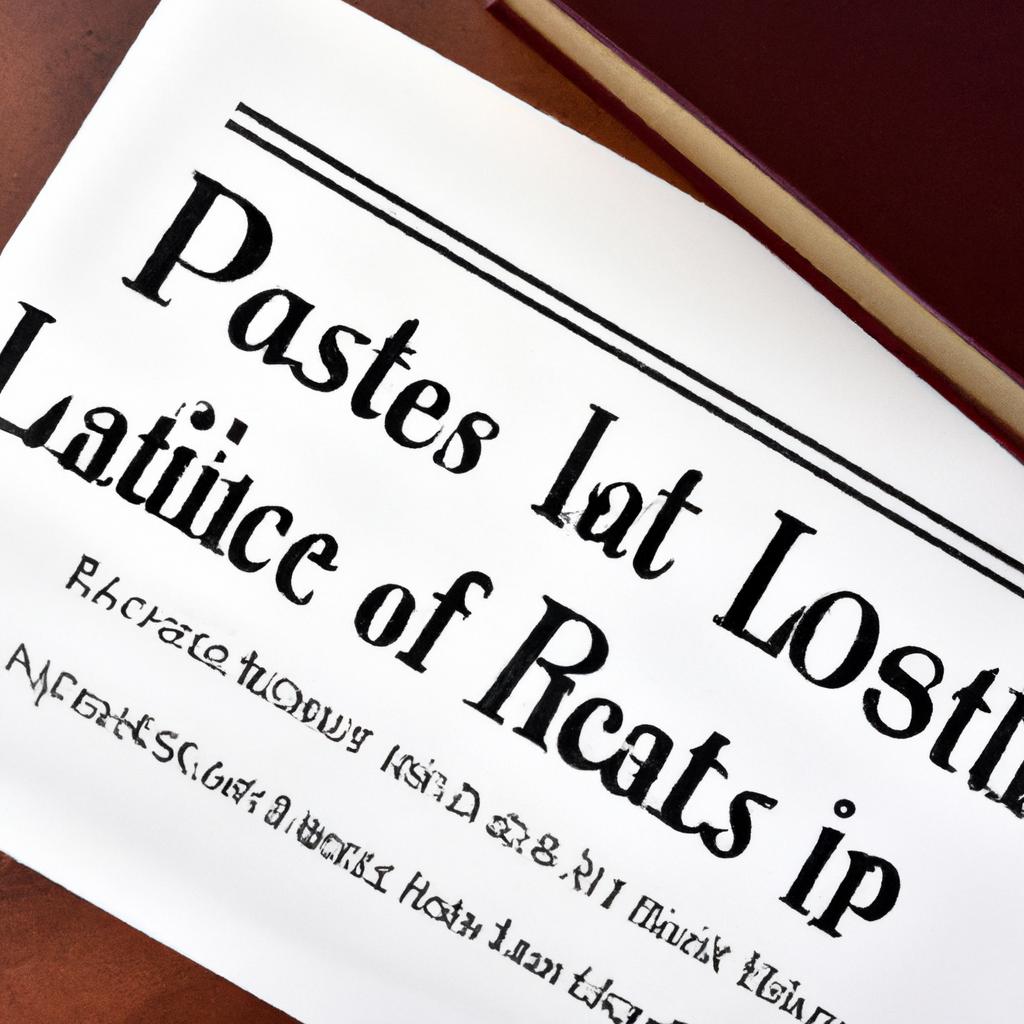Navigating the legal process following the passing of a loved one can be a daunting task, particularly when it comes to filing for probate. As seasoned attorneys specializing in estate planning here at Morgan Legal Group in New York City, we understand the complexities and nuances involved in probate proceedings. In this article, we will delve into the question that many individuals face: how long after death should one file for probate? Join us as we break down the timeline and considerations surrounding this crucial step in the estate administration process.
When to Initiate Probate Proceedings After a Loved One Passes
After the passing of a loved one, it is crucial to understand when to initiate probate proceedings to ensure a smooth and efficient process. Typically, probate should be filed within a reasonable timeframe to avoid any complications or delays in the distribution of assets. Here are some key factors to consider:
- Assess the complexity of the estate: Determine the size and complexity of the estate to gauge the urgency of initiating probate proceedings.
- Evaluate the presence of a valid Will: If a valid Will exists, it is essential to file for probate promptly to carry out the wishes of the deceased.
- Consult with an experienced probate attorney: Seeking legal counsel can provide clarity on the probate process and help determine the appropriate timing for filing.
| Assets | Timeline |
|---|---|
| Real Estate | 2-4 months |
| Bank Accounts | 1-3 months |
| Investments | 2-6 months |

Factors Affecting the Timing of Probate Filing
can vary depending on the circumstances surrounding the deceased individual’s estate. It is important to consider these factors before determining when to file for probate to ensure a smooth and efficient process. Some key factors to consider include:
- Complexity of the estate: If the estate is complex and includes various assets, debts, or disputes among beneficiaries, it may take longer to gather all the necessary documents and information required for probate filing.
- Location of assets: If the deceased owned assets in multiple states or countries, it may require additional time to navigate the legal processes in each jurisdiction.
- Outstanding debts: If the deceased had outstanding debts, creditors may need to be notified and given the opportunity to make claims against the estate before probate can be finalized.
In addition, the relationship between the executor and beneficiaries, as well as any potential challenges to the will, can also impact the timing of probate filing. It is crucial to work closely with an experienced probate attorney to navigate these factors and ensure a timely and successful probate process. At Morgan Legal Group, our team of skilled attorneys in New York City is here to guide you through the probate process and help you navigate any challenges that may arise. Contact us today to learn more about how we can assist you with your probate needs.
Importance of Acting Promptly in Probate Matters
When it comes to probate matters, acting promptly is crucial. Time is of the essence in these situations, as delays can lead to complications and potential disputes among beneficiaries. Filing for probate in a timely manner ensures that the deceased’s assets are properly distributed and that the wishes outlined in their Will are carried out.
By taking swift action in probate matters, beneficiaries can avoid additional stress and uncertainty during an already difficult time. Promptly addressing probate issues can also help prevent costly legal battles and ensure a smoother process for all parties involved. At Morgan Legal Group, we understand the importance of acting quickly in probate matters and are here to provide expert guidance and support every step of the way.

Consulting with Experienced Probate Attorneys at Morgan Legal Group
When it comes to filing for probate after the death of a loved one, timing is crucial. The general rule of thumb is that probate should be filed within a few months of the individual’s passing. However, the exact timeframe may vary depending on the circumstances surrounding the estate and the jurisdiction in which the deceased person resided. Consulting with experienced probate attorneys, like those at Morgan Legal Group, can help you determine the appropriate timing for filing probate.
Factors to consider when determining how long after death to file probate include:
- The complexity of the estate
- The need for immediate access to assets
- The existence of any disputes or challenges to the will
| State | Timeframe for Filing Probate |
|---|---|
| New York | Within 9 months of death |
| California | Within 30 days of death |
Q&A
Q: What is probate and why is it important to file it after someone’s death?
A: Probate is the legal process in which a deceased person’s will is validated and their assets are distributed according to their wishes. It is important to file probate to ensure that the deceased’s estate is handled properly and that their wishes are carried out.
Q: How long do I have to file for probate after someone’s death?
A: The timeline for filing probate varies by state, but generally, it should be done as soon as possible after the death of a loved one. In some states, you may have up to a year to file for probate, but it is best to do it promptly to avoid any potential complications.
Q: What happens if I wait too long to file for probate?
A: If you wait too long to file for probate, you may face penalties, delays in distributing assets, and even potential legal issues. It is best to consult with a probate attorney to determine the appropriate timeline for filing in your specific situation.
Q: Is it possible to extend the deadline for filing probate?
A: In some cases, it may be possible to petition the court for an extension on the deadline for filing probate. However, it is important to provide a valid reason for the extension and to follow the proper legal procedures for requesting more time.
Q: Can I handle probate on my own, or do I need to hire an attorney?
A: While it is possible to handle probate on your own, it can be a complex and time-consuming process. Hiring a probate attorney can help ensure that the process is conducted efficiently and accurately, and can help you navigate any potential legal challenges that may arise.
To Wrap It Up
In conclusion, determining when to file probate after a loved one’s passing can be a complex and emotional process. It is important to consider the specific laws and regulations in your state, as well as seek guidance from legal professionals to ensure the probate process is handled efficiently and effectively. Remember to take the time to grieve and reflect on your loved one’s life, as navigating the probate process can be challenging. Ultimately, by understanding the timeline and requirements for probate filing, you can honor your loved one’s legacy and ensure their final wishes are carried out with care and respect.

